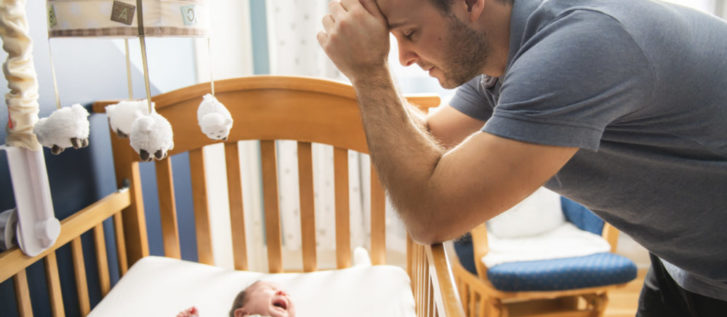
How to be a man
How to be a man, the Channel 4 two-part programme which launched this week, promised a lot...read more
Landmark research looks at why the policy has apparently flopped so far and offers bold solutions

Many fathers are not taking Shared Parental Leave (SPL) because they simply aren’t aware of it according to new research.
A huge study by the University of Birmingham into why the policy has largely failed to catch on finds that lack of awareness and societal expectation about what a man’s role should be is holding it, and men, back.
The work, by the University of Birmingham’s Equal Parenting project and led by Dr Holly Birkett and Dr Sarah Forbes, is the most comprehensive study yet into why parents are not taking up their entitlement to shared parental leave. It also offers a range of solutions to beef up the policy and drive take up, including a bold ask to have fathers covered by discrimination legislation.
Dr Forbes says, “The benefits of using this policy are vast. To hear fathers who have used it talk about developing a stronger bond with their child, wanting to be more involved in the day-to-day activities of raising their child as well as feel their relationship with their partner has strengthened as a result of using SPL just shows what a difference using this policy can make.”
However the authors found a wide range of factors inhibiting parents from actually using the policy, the first one being that many don’t think about it because they don’t realise it’s an option .
“The research demonstrates that parents often do not realise that they are eligible for SPL and Statutory Shared Parental Pay,” explains Dr Birkett. “Parents don’t realise that they can use SPL in ways which are not available through traditional maternity, paternity and adoption policies. Interviewees in our sample used SPL in a variety of ways, such as, to extend paternity leave, support their partner in the first few months, go travelling round Europe for six months as a family, and to facilitate mothers returning to work towards the end of the first year without the baby having to go to nursery at under one year old”
The research also found there are significant pay and cultural barriers to take up.
Professional couples are the most likely to share parental leave, particularly where the woman earns more. In most couples the man earns more meaning it is a bigger step down to switch to the statutory pay available during parental leave. Organisations that enhance their pay offer for employees taking SPL saw uptake improve.
There is also an issue around workplace culture and more widely where it is still widely expected that a woman will be the primary caregiver and that can lead couples to fall into traditional gender roles.
The research, carried out through focus groups and interviews with couples and parents, shows that where men feel that taking time out to care for their children might impact their career they are less inclined to take it.
This is despite a long list of benefits associated with SPL including boosting child development, improved father/child bonding, better paternal welfare and better mental health in both parents.
Normalising SPL is also seen as a key way of tackling the gender pay gap. Currently women who take extended maternity leave suffer a pay penalty that can last their entire working life.
The study concluded significant barriers to the uptake of SPL exist which need to be broken down, notably: organisational, cultural, communication, financial and policy barriers, while gatekeeping behaviours were also influential.
“Our study shows how certain barriers are inhibiting gender equality in the workplace and it is important that future efforts by organisations and citizens alike address and overcome these barriers,” says Dr Forbes.
The report comes with a series of recommendations for business and government. The authors call on organisations to enhance their shared parental leave and pay policies in line with their maternity leave and pay arrangements and appoint workplace champions to make employees aware of SPL and its benefits.
They also call on government to expand the policy to the self-employed and look at increasing the amount of leave available including an element just for fathers. They also suggest paternity could be brought into current discrimination laws so men who ask to take SPL or apply to do flexible working after they become fathers would have redress should they see their careers stall as a result.
The research is published in the academic journal Policy Studies. Information about it can be found here.

A new Bill which seeks to address a legal 'loophole' for parents whose partners die in pregnancy or childbirth has passed the first hurdle in the... read more

With redundancies on the increase at the moment, it pays to know what your rights are. read more

There is a raft of new legislation coming into effect in 2024 which could help those balancing work and family life. read more

Report reveals 12 priority actions for boards, people leads and the government. read more
Comments [1]
Chris Colyer says:
I certainly agree that awareness is a major inhibitor – but it’s not just awareness, it’s also a lack of precedent. I think new parents naturally look for advice and guidance from those who have done it before. Those who have done it before didn’t have Shared Parental Leave. The good news is that for every person who takes SPL, many more will be encouraged to do so.